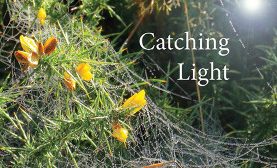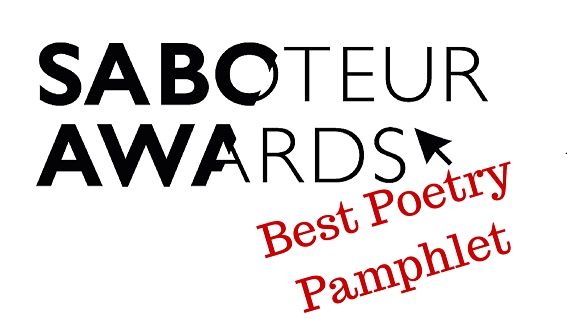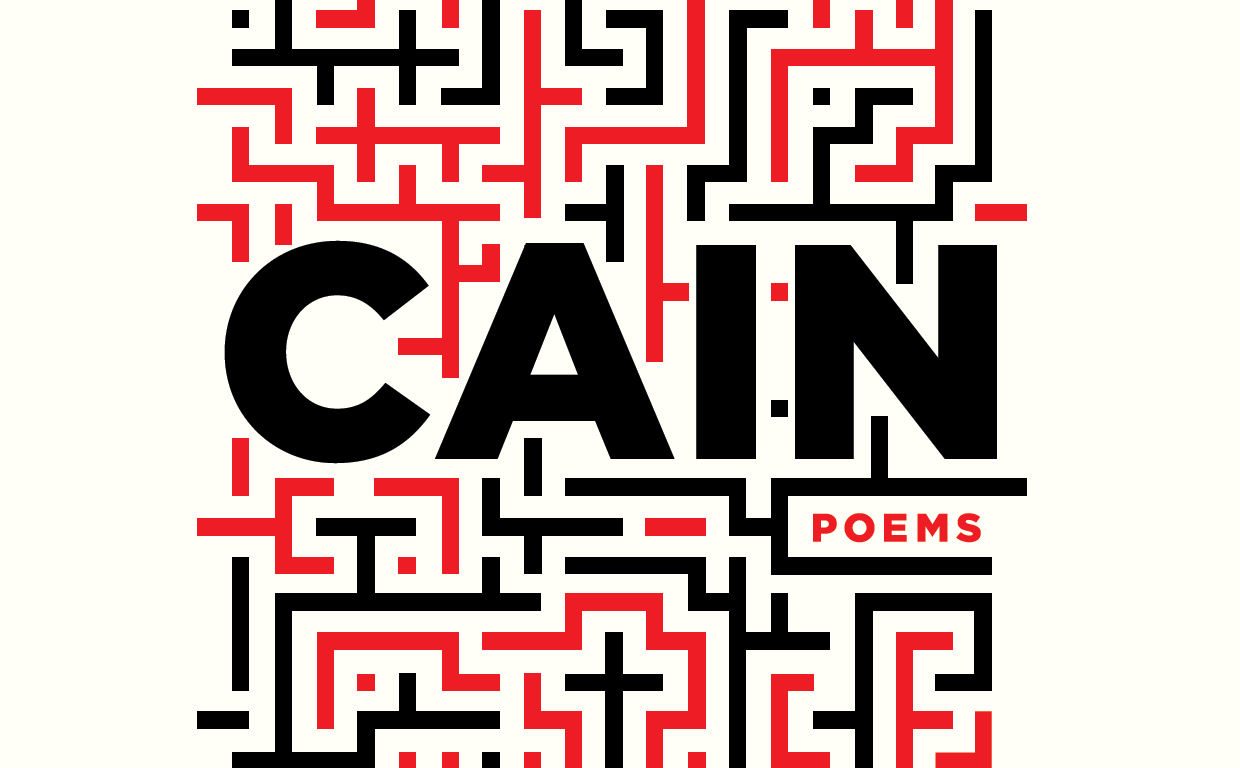Catching Light by Helen Boyles
– Reviewed by Humphrey Astley –
Catching Light, the debut pamphlet by Devon poet Helen Boyles, is unlikely to excite anyone who looks for innovation, but its author’s background in teaching English really shows: here is a poet who knows what she wants to say and, for the most part, how to say it; a poet who, when asked why she eschews formalism, would probably reply that it only gets in her way. You have to respect that.
These are nature poems, poems in thrall to flora and fauna, though Boyles’ interest in landscape – where nature and civilisation collide – inevitably produces tension. Opening piece ‘Earth Time, Devon’ is a single, half-page strophe that can be read as impartial scene-setting, though all is not quite as it seems. Each of its three sentences begins with the urgency of a verb, but it’s unclear whether we are having these acts described to us or asked of us. And there’s something about the way the ‘red earth […] stains the fleece of grazing sheep’, the way the ‘birds spill their sad cadences’ (my italics), that belies the speaker’s impartiality.
The strength of this opening poem and its ‘fists of granite dark against the sun’ is carried over into ‘Trafalgar Woods’, in which ‘Dreadnought, Ajax, Orion, Thunderer […] crack / and split the ancient silences‘ (Boyles’ italics). Here the gods ‘possess’ the trees and ‘resurrect their names as living masts’. It’s a tough little piece, if briefly slowed down by a mouthful like ‘commemorative’.
Next up is ‘Otter’, which makes the case that no matter how far we get from our origins, we retain something of them. This in itself is nothing new but thankfully Boyles resists bringing the usual primates or cavemen into the mix; instead she argues that while we may have ‘defined our world with walls / and laid down stones for walking’, ‘water still dances in the deeps of our eyes […] and when we enter it in wild river swim / our otter spirit, otter self […] is born again.’ Otter self? The image is absurd but there’s no denying it’s original.
‘Stealth’ is one of the most intriguing pieces in that the subject of the poem seems to be subjectivity itself, with the poet sending her free-flowing mind out into the world and observing the ripple effect:
Shapeless and shape-shifting now
she stretches in the tree,
finds a crook, folds in its arms,
swings guiltless underneath the watching stars.
Then, with a rare technical flourish, Boyles marries form and content by describing how ‘Trees rustle with the waking owls / which loosen vowels in the / echo chamber of the waiting wood.’ This is why good alliteration is more than just window-dressing: it allows ideas to make things in their image. And while one probably shouldn’t read too much into ‘those apples / gleaming in the moon’s eye’, it’s hard not to infer a Genesis narrative with talk of ‘Shedding laws and boundaries’ (not to mention the aforementioned guiltlessness).
‘Dawlish Railway, Winter 2014’ is much more straightforward, perhaps to its detriment. It describes ‘That long wet winter / we, our homes, / were punished by the elements’, and while there’s some excitement to be had in ‘the pummelling / of wind’ and ‘the angry surge / of sea’, it all ends with Boyles putting her ecologist’s cards rather flatly on the table:
We mend, restore,
buttress sand-soft cliffs,
work to keep the memory
at bay,
keep at bay the knowledge
of our power to abuse, impose,
ignore,
the power of nature
to retaliate.
‘Laurebina Pass, Himalaya’ is a welcome turning-point in the collection because, as its title suggests, it gets us out of the UK. And there are some wonderful lines:
Ringed by watching peaks,
wild spin of wind and snow,
thought curled in the whisper
of the ear’s whorl untroubled
by the growl of storm, the rain’s tattoo,
another sleeps and dreams of words.
It also gets us out of Boyles’ head, whereupon we see the world from someone else’s point-of-view:
‘Food,’ he says; and turning
to the boy beside him: ‘Brother.’
To a flapping shape above:
‘Crow!’ he exclaims,
and pointing higher, ‘Sun!’
This change in perspective brings on a series of character studies, the first being ‘Bede of Jarrow’. Again there’s a pleasing blend of form and content, as Boyles writes with great care of a monk who writes just as carefully, ‘Mind bent on the waiting page, / hand moving quietly in careful cursive / latticing its white.’ The poem’s sense of focus not only does its subject justice but also produces some of the collection’s most readable lines, which have something of John Burnside’s scattered metrics:
These stones were all he’d known,
confined, protected,
buttressed him from storm.
They served him, he served them,
from youth to age
through interchange of mind […]
‘Courbet’s Apples’ is suitably vivid and tactile, all colours and textures, and ends with a surprising moment of magical realism: ‘he gazes, / plucks them from the picture space, / and eats.’ (Ashbery would like this poem.) ‘Mrs Radcliffe’s Gothic’ and ‘William Blake, Engraver’ are less impressive – vague and overly-broad ideas like ‘shadow’s mystery’ and ‘imagination’s grace’ water them down – though the former’s ‘ravelled skein of dreams’ is a lovely image.
‘Dear Theo’, which takes the form of a letter from (I presume) Vincent Van Gogh to his brother, is possibly one of Boyles’ most sophisticated poems: there are two voices at work here but we can’t be sure whose is whose. Is Vincent hearing things? Or is he merely imagining his brother’s responses? You decide:
Dear Theo,
Here is an open book:
you recognise the one.
I have applied a light tone on a dark ground.
The page is blurred:
you may inscribe the sower’s parable.
The effect is perturbing and allows Boyles’ unexpectedly dark, expressionist side to show, as ‘the blank chairs frame estrangement’ before the ‘final anointing of earth’s womb, / earth’s grave.’ It’s a bit of a shame then that Boyles follows it up with a sentimental piece (‘I shall nurse this message / and shall cup the spirit / in the chalice of my heart’ – ouch) on the death of Heaney, using his Latin last words ‘noli timere’ as inspiration. It’s a nice idea and tastefully done, but a thousand poets probably had the same idea and (we can only hope) thought better of it.
Catching Light is long and generally strong enough that the previous poem (plus a few others) could easily have been excluded. Fortunately the collection ends on a high, with ‘Ancestral Voices’, which returns to and wraps up many of Boyles’ themes: nature, the imagination and, of course, light. An image like ‘the warped cask of dreams’ is a fine one to end on.





